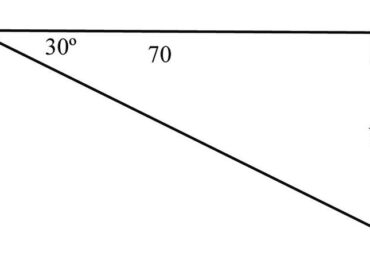Do you see it as a mountain against the writing of your thesis/term paper? Or do you fully enjoy this award in your study career? To help you on your way, you can find below what the process of writing a thesis can look like. This piece should be seen as an aid in writing a thesis/term paper.
Unfortunately, you have to write your thesis. That does not mean that you cannot get any help at all. There are thesis experts who can help you in the field of (academic) language use, the structure of your thesis/term paper writing. Curious? Then read our previous article about affordable term paper writing projects at Cheap Custom Papers.com, many students use this Source
What is a thesis/affordable term paper?
The doctoral thesis or affordable term paper writing is an argumentative argument based on your analysis. It is the result of a substantial literature study, in which feedback and synthesis can also be found. What’s the meaning of this:

An argumentative argument based on analysis: An answer is formulated through scientifically relevant and motivating question formulation (also: problem definition) using a substantiated answer to sub-questions. The thesis is therefore not a descriptive paper or an inventory, report, manual, or otherwise.
Substantial literature and source study: The argument bears witness to the knowledge of the state of research and enriches existing scientific knowledge with added value. The argument is explicitly not limited to a reformulation of findings in the literature and explores new sources of knowledge.
Feedback and synthesis: The argument shows coherence and structure and the conclusion follows logically from the arguments put forward in the various chapters. Click here for the source
How to start with your thesis/term paper?
The preparation
First of all, you need to read yourself very well into the various potential topics for your thesis/term paper. It is strongly recommended that you already start this while following the master’s courses, for example. Read many other articles about this topic. Try to find out what has already been investigated in this area and what is recommended for further investigation. Don’t get too far ahead of the matter by asking yourself too much what a good question could be.
Getting a good idea with and about the subject, in particular, is crucial in the beginning. Let your thoughts run free. The highest attainable in this initial phase is to get a good picture of the subject to be studied. Hereby you have to bite into a subject that you shouldn’t let go! So remember that the subject for your thesis/term paper must be interesting enough to keep you busy for a long time.
Also, during the preparation of your thesis/term paper, it is of great importance that you are aware of the teachers who could guide you during the writing of your thesis/term paper. Especially if the supply of teachers is disappointing, it is wise to select your favorite in time and to try to get this teacher as your supervisor. A good supervising teacher is worth gold while writing his affordable term paper!
Delimitation
After your dedication to a certain topic, about which you have collected a series of information, some frameworks need to be determined. These frameworks are usually already provided by the educational institution (such as deadlines for submitting the thesis/term paper, the scope of the thesis/term paper, nature of the research). Nevertheless, you should have the following points for yourself:
How you will do the research (for example, literature review or research following an internship).
Timetable, make a clear overview of the available time and time that you need for making your thesis/term paper. Do not be too ambitious here, in practice it is usually disappointing how much time you spend on your thesis/term paper. The coffee breaks with fellow students are also always very pleasant and with good weather and major sporting events (World Cup / Football Championship), it is best to take the planning into account. When you generously set your schedule, you can better commit yourself to stick to it. Try to find the right balance for yourself here.
Be aware of the fact that your thesis/term paper does not have to become the standard work within the field and try to adjust your ambitions when you risk drowning in your research.
Provide a location where you can work well. If this is your room, make sure you have all the facilities at hand and try to cover as much as possible against a crashing computer. Of course, nobody is waiting for the latter.
Definitive determination of subject and question
After you have done the preliminary work, you can concentrate on choosing a definitive subject. Try, if possible, to gather more information about this topic. You may have received new input for your thesis after your interview with your supervisor.
Make sure that you keep all the information you have found in an orderly fashion. Throwing all articles into a folder will not be effective. Try to arrange found material into subtopics. At the very least, you can put numbers before the file names, so that you can quickly refer to them in your draft.
In this phase of writing your thesis/term paper, the moment has come to formulate a question based on which you will conduct the research. This question, which will clearly and completely touch the core of the research, must be addressed and guided through your entire research. So do not be vague in your question so that you work well from the start. Afterward, you will benefit greatly from a well-formulated question.
After drafting the questions and assumptions, it is wise to already cast them in a certain form. The table of contents can already be drawn up globally. Also, take into account the design of your research and how you should conduct it.
The research
After all the previous preliminary work, you can finally start the actual research. The core of your thesis/term paper. Keep to your schedule and do not stray too much from your research question. In this process, keep your points in mind from the preparation. Also, you will need to archive your found data consistently so that you can easily find it later.
Also, make notes about when and how certain information was obtained. What will come across as exaggerated in the beginning will save you a lot of time later in the writing process? Try to restrain your enthusiasm in this process, as there is still enough work left after the investigation.
Draft version
After the research, you can start on the draft version of your thesis/term paper. The draft version has been given this name for a reason. Don’t overload yourself with self-criticism here. Something that at first seems too far-fetched can be viewed very differently by yourself the next day and vice versa. Also, never start with the introduction of your thesis/term paper. Always start with the chapters where you already have a reasonable thought. Start writing this first, so that your thesis/term paper will gradually take shape.
Rewriting the draft version
When the draft version is ready, you can have it viewed by your supervisor and other interested parties. Always take their criticism to heart and let it sink in, but keep believing in your piece. After you have put aside your draft version of your thesis/term paper, it is important to take a good new look at your thesis/term paper.
Are the connections you have made available? Are your assumptions correct? Do you meet a certain scientific level? Is the piece consistent? Are the layout and language used pleasant to read? This last question also directly introduces the final phase of affordable term paper writing your projects.
Finishing your thesis/term paper
Here the focus is less on the content (after all, it was already approved in the previous one), but more on the form and style of your thesis/term paper. Makes the layout tidy, make sure you have a good table of contents, don’t forget the page numbers (!!), make sure the paragraphs are neatly divided, use a plagiarism checker, check the readability again, make sure the introduction covers the content well and sets it finally, convert your Word document into a pdf format. Don’t know how this works? Read here all about converting a Word document into a PDF document.
If you want to use images in your thesis, make sure that these are professional-looking images. For this, you can search the best on this site. The majority of the images on this site are free and without advertising etc.








